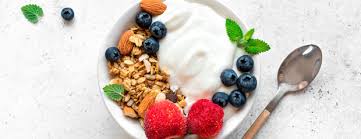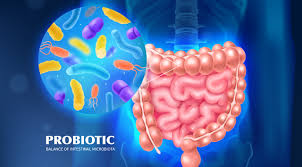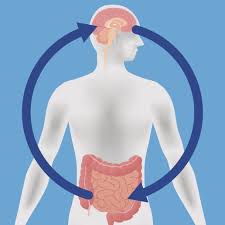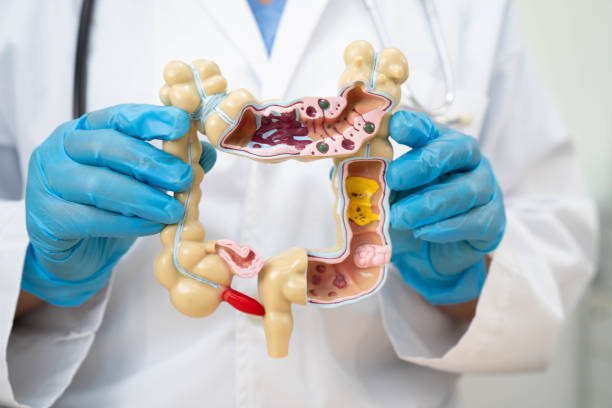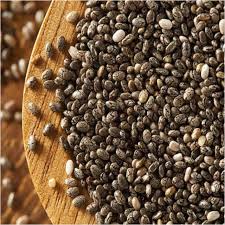Probiotics vs. Prebiotics – What’s the Difference?
Prebiotic vs. Probiotic: Differences, Benefits, and Foods
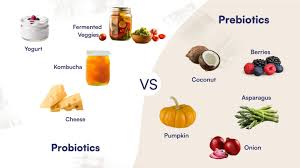
When it comes to gut health, two commonly discussed terms are prebiotics and probiotics. Though they are often mentioned together, they serve different roles in maintaining a healthy digestive system. In this blog, we’ll break down the key differences, benefits, and the best foods that contain prebiotics and probiotics. Understanding how these elements contribute to gut health is essential for anyone looking to improve digestion, immunity, and overall well-being.
Understanding Prebiotics and Probiotics
What Are Prebiotics?
Prebiotics are types of fiber that serve as food for beneficial bacteria in the gut. These non-digestible fibers help nourish and promote the growth of good bacteria, leading to a balanced gut microbiome. Since prebiotics are not digested by the body, they pass through the digestive tract and become a source of nourishment for beneficial bacteria in the colon.
Examples of Prebiotic Fibers:
- Inulin
- Fructooligosaccharides (FOS)
- Galactooligosaccharides (GOS)
- Resistant starches
Prebiotics naturally exist in a variety of plant-based foods and are essential for maintaining a healthy gut microbiota. When consumed regularly, they support a diverse gut ecosystem, leading to better digestion and enhanced absorption of nutrients. Since prebiotics serve as the “fuel” for good bacteria, they indirectly contribute to overall health in multiple ways.
What Are Probiotics?
Probiotics, on the other hand, are live beneficial bacteria that directly contribute to gut health. These microorganisms help replenish and maintain a healthy balance of gut flora, which is essential for digestion, immune function, and overall well-being. Unlike prebiotics, which serve as food for existing bacteria, probiotics introduce new strains of beneficial bacteria into the gut.
Common Probiotic Strains:
- Lactobacillus
- Bifidobacterium
- Saccharomyces boulardii (a beneficial yeast)
Probiotics can be found in various fermented foods, supplements, and even some dairy products. Since they consist of live microorganisms, their effectiveness depends on factors such as strain viability and how well they survive the digestive process. Regular consumption of probiotics can help restore gut balance, particularly after disruptions such as antibiotic use or illness.
Key Differences Between Prebiotics and Probiotics
| Feature | Prebiotics | Probiotics |
|---|---|---|
| Nature | Non-digestible fibers | Live beneficial bacteria |
| Function | Nourish gut bacteria | Introduce beneficial bacteria |
| Role in Gut Health | Enhances existing microbiome | Helps balance gut flora |
| Found In | High-fiber foods | Fermented foods & supplements |
Although prebiotics and probiotics work differently, they complement each other. A diet rich in both helps maintain an optimal gut microbiome, supporting digestion, immunity, and even mental health.
Health Benefits of Prebiotics and Probiotics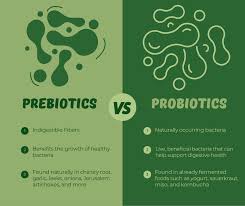
Prebiotic Benefits
- Supports Gut Health – Encourages the growth of beneficial gut bacteria, improving digestion and reducing bloating.
- Enhances Mineral Absorption – Aids in the absorption of essential minerals such as calcium, magnesium, and iron, which are crucial for bone health and muscle function.
- Boosts Immune Function – Strengthens the gut barrier and helps regulate immune responses, reducing the likelihood of infections and inflammation.
- Promotes Weight Management – Can aid in appetite regulation and reduce fat storage by influencing gut bacteria that play a role in metabolism.
- Reduces Inflammation – A well-balanced gut microbiome can help lower inflammation in the body, which is linked to conditions like heart disease and diabetes.
- Enhances Mood and Mental Health – A healthy gut can positively influence mental well-being by supporting neurotransmitter production.
Probiotic Benefits
- Restores Gut Flora – Helps replenish good bacteria, especially after antibiotic use, which can wipe out both harmful and beneficial bacteria.
- Aids Digestion – Alleviates issues like bloating, gas, diarrhoea, and constipation by promoting a healthy balance of gut bacteria.
- Strengthens the Immune System – Enhances the body’s defence mechanisms by preventing harmful bacteria from taking over the gut.
- Supports Mental Health – Emerging research suggests a gut-brain connection, with probiotics potentially reducing anxiety and depression by influencing neurotransmitter production.
- Improves Skin Health – Some probiotic strains are linked to reduced acne, eczema, and other skin conditions by promoting gut health and reducing systemic inflammation.
- Reduces Risk of Allergies – Some studies suggest that probiotics can help reduce allergy symptoms and even lower the risk of developing certain allergic conditions.
- Prevents Traveler’s Diarrhea – Probiotics can protect against digestive issues that arise from consuming unfamiliar foods while travelling.
Best Food Sources of Prebiotics and Probiotics
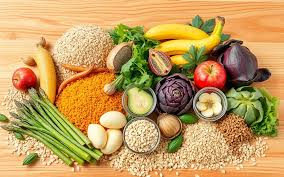
Top Prebiotic-Rich Foods
- Garlic
- Onions
- Leeks
- Bananas
- Asparagus
- Oats
- Chicory root
- Apples
- Barley
- Flaxseeds
- Legumes
- Dandelion greens
Top Probiotic-Rich Foods
- Yogurt (with live cultures)
- Kefir
- Sauerkraut
- Kimchi
- Miso
- Tempeh
- Pickles (fermented naturally)
- Kombucha
- Soft cheeses (such as Gouda)
- Traditional buttermilk
- Natto (fermented soybeans)
By incorporating these foods into your diet, you can naturally improve your gut health. Consuming a mix of both prebiotics and probiotics is essential for optimal digestive and overall health.
Should You Take Supplements?
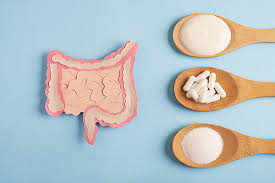
While both prebiotics and probiotics are available in supplement form, it’s generally best to get them from whole foods. However, supplements can be beneficial if dietary sources are insufficient or if you have specific gut health issues. Certain probiotic strains are tailored for specific health conditions, so choosing the right supplement requires research or consultation with a healthcare professional.
When selecting a probiotic supplement, look for the following:
- Multiple strains of beneficial bacteria (e.g., Lactobacillus and Bifidobacterium)
- High CFU count (colony-forming units) for effectiveness
- Shelf-stable or refrigerated varieties for better viability
Similarly, prebiotic supplements often contain a blend of fibers such as insulin or fructooligosaccharides (FOS). While they can enhance gut health, excessive intake may lead to bloating or gas, so it’s important to start with small doses and adjust as needed.
Conclusion
Both prebiotics and probiotics play crucial roles in maintaining a healthy gut, but they function differently. Prebiotics feed beneficial gut bacteria, while probiotics introduce and maintain those bacteria. A diet rich in both can lead to improved digestion, immunity, and overall well-being. By incorporating fiber-rich foods and fermented products into your meals, you can naturally support your gut health and enhance your quality of life.
A balanced gut microbiome not only improves digestion but also influences immune function, mental well-being, and even weight management. Whether through whole foods or supplements, ensuring a steady intake of both prebiotics and probiotics is key to long-term health. Take charge of your gut health today by making informed dietary choices and embracing a lifestyle that supports a thriving microbiome. Remember, a well-nourished gut is the foundation of overall health and vitality. Prioritising gut health can have far-reaching effects on your body, helping you feel more energised and resilient every day.
